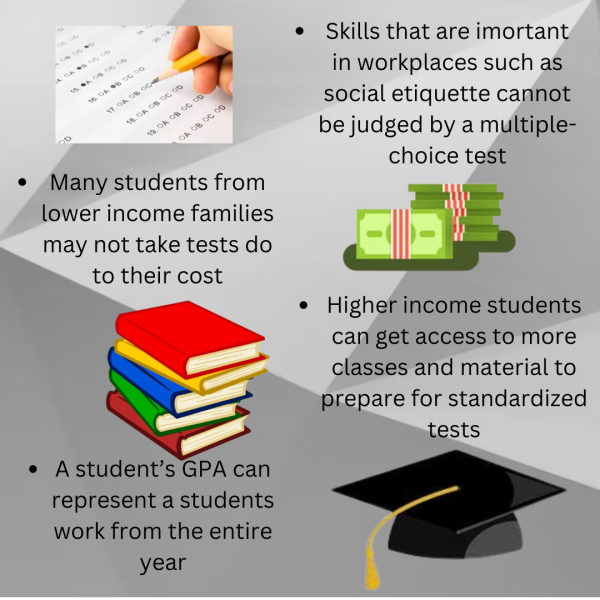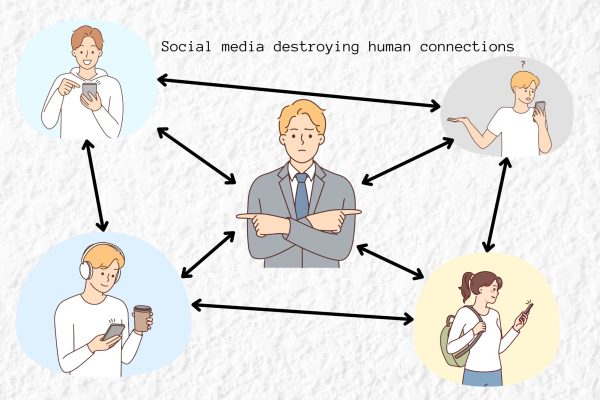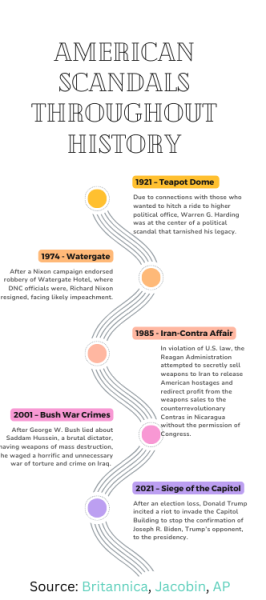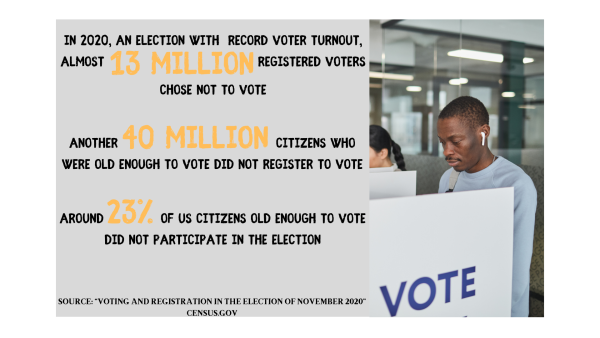Our Media is Becoming More Pro-Corporate
Corporations are controlling consumer political views through the media.
February 2, 2023
*The opinions expressed within the content are solely the author’s and do not reflect the website’s or its affiliates’ opinions and beliefs.*
Our media is owned by private companies, and just like any other business, they are beholden to the profit motive. Media companies are incentivized to make as much money as possible to maintain their enterprise and beat competitors. This motive, however, has many unintended consequences. It is often blatantly obvious when media companies promote right-wing stances as a result of their right-wing shareholders. However, in other cases, the media’s interest in pushing against leftist stances is much more hidden. This creates a media structure that promotes the ideas that benefit businesses and the mega-wealthy.
Under a dictatorial regime, it would be expected that media sources present a favorable view of the dictatorship. Though when it comes to our current “free market” model of privately owned media, people are inclined to believe that all opinions are equally shared in a “marketplace of ideas.” Privately owned media is not the same as media under a dictatorship, but they do have many striking similarities. One of the consequences of a market is that all companies want to consolidate a market and remove all competition. This is shown to us in the form of media mergers. In 1983, 50 companies controlled 90% of our media sources, while in 2012, only six controlled this 90%. This media industry consolidation puts our opinions in the hands of a few, and because they are massive conglomerates, they will put the interests of conglomerates first. These interests include deregulation of the minimum wage, working daytime, preventing anti-trust, preventing unionization and less regulation on what is permitted in the media.
Not only does the media prioritize conglomerate ideals, but it also capitulates to the wants of its advertisers. It is obvious that if you are a media company that relies on advertisers for revenue, you will present those advertisers better lest they remove their ads. These media companies know that the fear of ad boycotts looms above their head if they attack the profit motive that their advertisers rely on. Media companies know that they need advertisers on their platforms as much as they can, so they try to keep their news stories easy to digest so the viewer is ready to consume the advertisements and the products they promote. Not only do media companies make their decisions on who to hire based on their ability to work for the needs of their advertisers, but the journalists themselves face pressure from advertisers to promote their interests in their news stories.
The 24-hour news cycle makes a profit off of ads and thus benefits from having more eyes on their shows at all times. Considering this financially driven motive, private media often combines eye-catching stories, fear and moral panic to keep viewers on. Private media has essentially become entertaining rather than informative. Furthermore, not only are right-wing fights based on wedge issues more compelling to viewers, but they also distract people from economic problems.
Elon Musk’s recent purchase of Twitter exemplifies how corporate propaganda has become normalized in our media. As the richest man in America, Musk’s interest in maintaining his status quo directly opposes the expression of anti-capitalist ideology and unfavorable comments of himself. Musk’s Twitter takeover has already resulted in the banning of his critics and unbanning of far-right media figures. Moreover, Musk is not alone when it comes to immensely wealthy capitalists purchasing media power; Jeff Bezos owns the Washington Post, Google funds Wikipedia and Murdoch owns Fox News, among many other cases. Fundamentally, all media companies have wealthy shareholders because of the economic structure of such joint-stock companies.
One way that media companies always cut costs is by outsourcing their informants on a topic. Consider this: if Media Company A wants to have a story on something going on in a small town, but they do not wish to pay to maintain a reporter and journalist investigator on the ground everywhere to have all information on a story, then they will make a connection with someone to give them information. Our government is a surprisingly common informant for new stories. Journalists often need information from the government to report on a story, and it especially benefits them if they can get an exclusive story. However, this means that the government can propagate a specific viewpoint to the public, much of which is created by press secretaries. On top of this, our government can “leak” information to the public that promotes their view. Examples of this are such as COINTELPRO or following 9/11. Our government’s influence over the media may seem self-evident and seem unimportant, but in reality, this fact shapes how our media provides new information.
While it seems obvious that the government propagates its position through the media, it is less obvious when it comes to private businesses. Large businesses almost always have communications directors who promote the company’s view. These people are essentially propaganda agents for the capitalist class. They promote the ideas that support their companies and force them into our media. Not only do these corporations have an interest in promoting their agenda, but journalists benefit from getting information directly from the source. It’s a win-win and the only loser is the viewer who gets a slanted perception of the story. Similar to how businesses operate, police departments also have spokespeople who propagate a pro-police narrative to the general public. Around 50 percent of local news is devoted to crime and policing, and 95 percent of people gain the majority of their information on crime from the news. This immense amount of eyes on the local news allows police departments to push their agenda of supporting police. This agenda is the reason why people perceive that crime rates have been increasing even though they have been on a decline since the 90s. While such agents already may seem unethical, massive corporations have a much more hidden way to promote their viewpoints: think tanks.
Think tanks and other advocacy organizations are forums that promote specific views on certain issues, even though they are usually painted as unbiased. These studies done by the think tanks are used by media companies to get a source on a topic. They can have a specific topic like climate change or space exploration. However, they need funding from somewhere. In a few cases, the money comes from governments, but the most common contributions to think tanks are private. Many foundations held by the wealthy will donate to think tanks to promote something they believe in. This can benefit advocacy organizations by producing studies to spread awareness about issues like poverty or homelessness. However, the wealthy and upper class also have interests they would love to propagate to the public. These rich individuals create funds and foundations to donate to think tanks of their choice.
In the media, think tanks promote themselves as sources for media corporation claims. The Heritage Foundation is the most cited think tank in American media. Not only is it explicitly right-wing, but the organization is also in part funded by billionaires such as Robert Mercer and John Coors, head of the Coors Beer Company. Considering that wealthy, pro-capitalist individuals are the primary contributors to think tanks, think tanks often lean away from leftist stances. This creates a problem where even supposed “centrist” think tanks are still promoting the interests of capital. When this new right-wing centrism is promoted to the public it further turns our entire political Overton window to the right. The Brookings Institute, for example, is purported to be a centrist think tank and is one of the most cited in the world, but it is funded by capitalists who have an interest in promoting a pro-corporate viewpoint in the media.
Private media is a propaganda mouthpiece for the rich. The question is what do we do about it? Unfortunately, it is essentially impossible to truly remove corporate interests in our media. Current media systems seek profit and are fundamentally influenced by the rich. However, there are small things we can do such as informing people about the biases that media sources have, no matter how “centrist” they claim to be. We can also pass legislation preventing corporations or government agencies from directly promoting their position to the media. These actions are a good start, but if we want to remove corporate interests entirely from our media, we must prevent media sourcing from private companies themselves. We need to put the control of the media in the hands of the people rather than in the hands of private interests.















